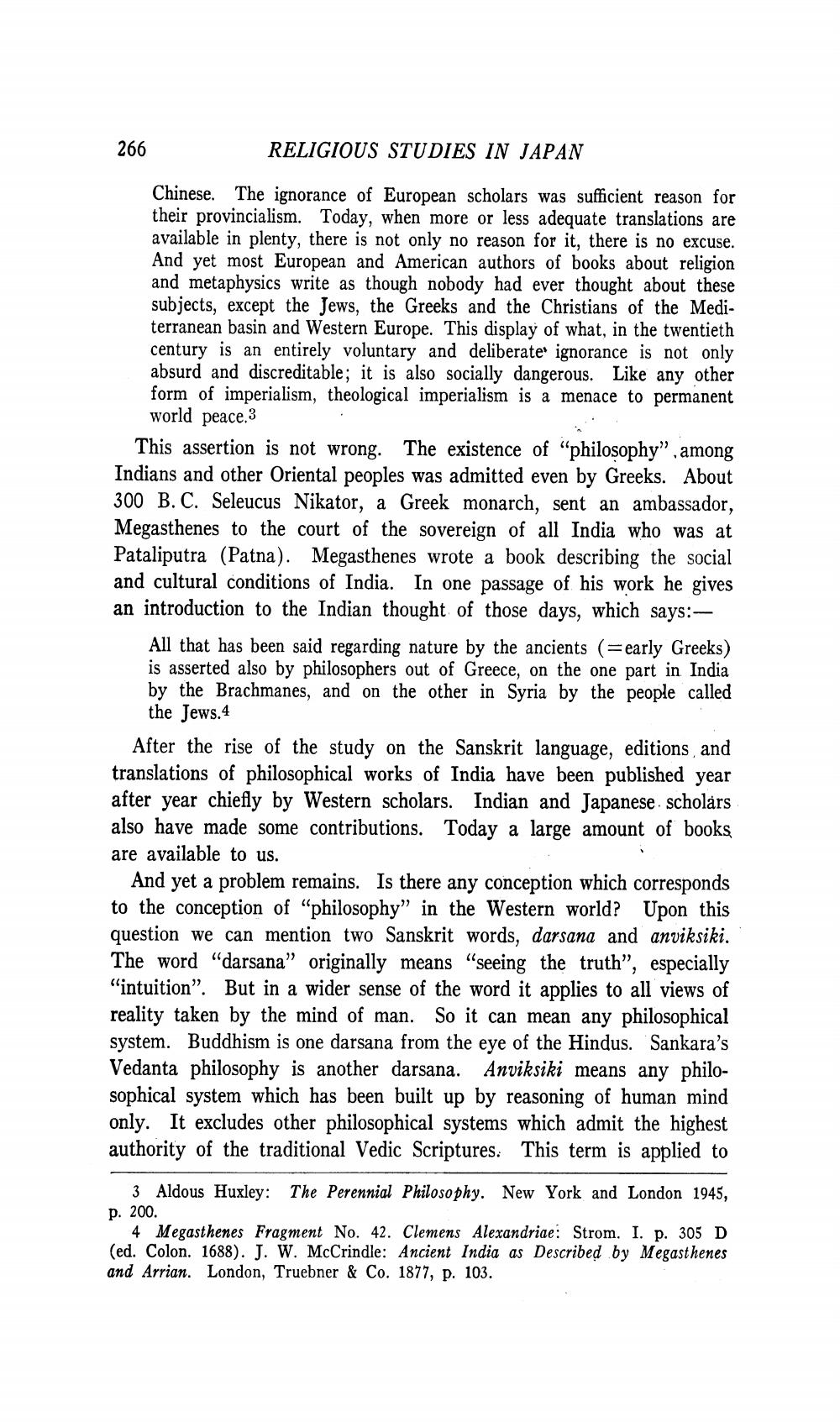Book Title: New Way Of Approach In Buddhist Studies Author(s): Hajime Nakamura Publisher: Hajime Nakamura View full book textPage 4
________________ 266 RELIGIOUS STUDIES IN JAPAN Chinese. The ignorance of European scholars was sufficient reason for their provincialism. Today, when more or less adequate translations are available in plenty, there is not only no reason for it, there is no excuse. And yet most European and American authors of books about religion and metaphysics write as though nobody had ever thought about these subjects, except the Jews, the Greeks and the Christians of the Mediterranean basin and Western Europe. This display of what, in the twentieth century is an entirely voluntary and deliberate ignorance is not only absurd and discreditable; it is also socially dangerous. Like any other form of imperialism, theological imperialism is a menace to permanent world peace.3 This assertion is not wrong. The existence of "philosophy”, among Indians and other Oriental peoples was admitted even by Greeks. About 300 B.C. Seleucus Nikator, a Greek monarch, sent an ambassador. Megasthenes to the court of the sovereign of all India who was at Pataliputra (Patna). Megasthenes wrote a book describing the social and cultural conditions of India. In one passage of his work he gives an introduction to the Indian thought of those days, which says: All that has been said regarding nature by the ancients (=early Greeks) is asserted also by philosophers out of Greece, on the one part in India by the Brachmanes, and on the other in Syria by the people called the Jews.4 After the rise of the study on the Sanskrit language, editions and translations of philosophical works of India have been published year after year chiefly by Western scholars. Indian and Japanese scholars also have made some contributions. Today a large amount of books are available to us. And yet a problem remains. Is there any conception which corresponds to the conception of "philosophy” in the Western world? Upon this question we can mention two Sanskrit words, darsana and anviksiki. The word "darsana" originally means "seeing the truth”, especially "intuition”. But in a wider sense of the word it applies to all views of reality taken by the mind of man. So it can mean any philosophical system. Buddhism is one darsana from the eye of the Hindus. Sankara's Vedanta philosophy is another darsana. Anviksiki means any philosophical system which has been built up by reasoning of human mind only. It excludes other philosophical systems which admit the highest authority of the traditional Vedic Scriptures. This term is applied to 3 Aldous Huxley: The Perennial Philosophy. New York and London 1945, p. 200. 4 Megasthenes Fragment No. 42. Clemens Alexandriae: Strom. I. p. 305 D (ed. Colon. 1688). J. W. McCrindle: Ancient India as Described by Megasthenes and Arrian. London, Truebner & Co. 1877, p. 103.Page Navigation
1 2 3 4 5 6 7 8 9 10 11 12 13 14 15 16 17 18 19 20 21
